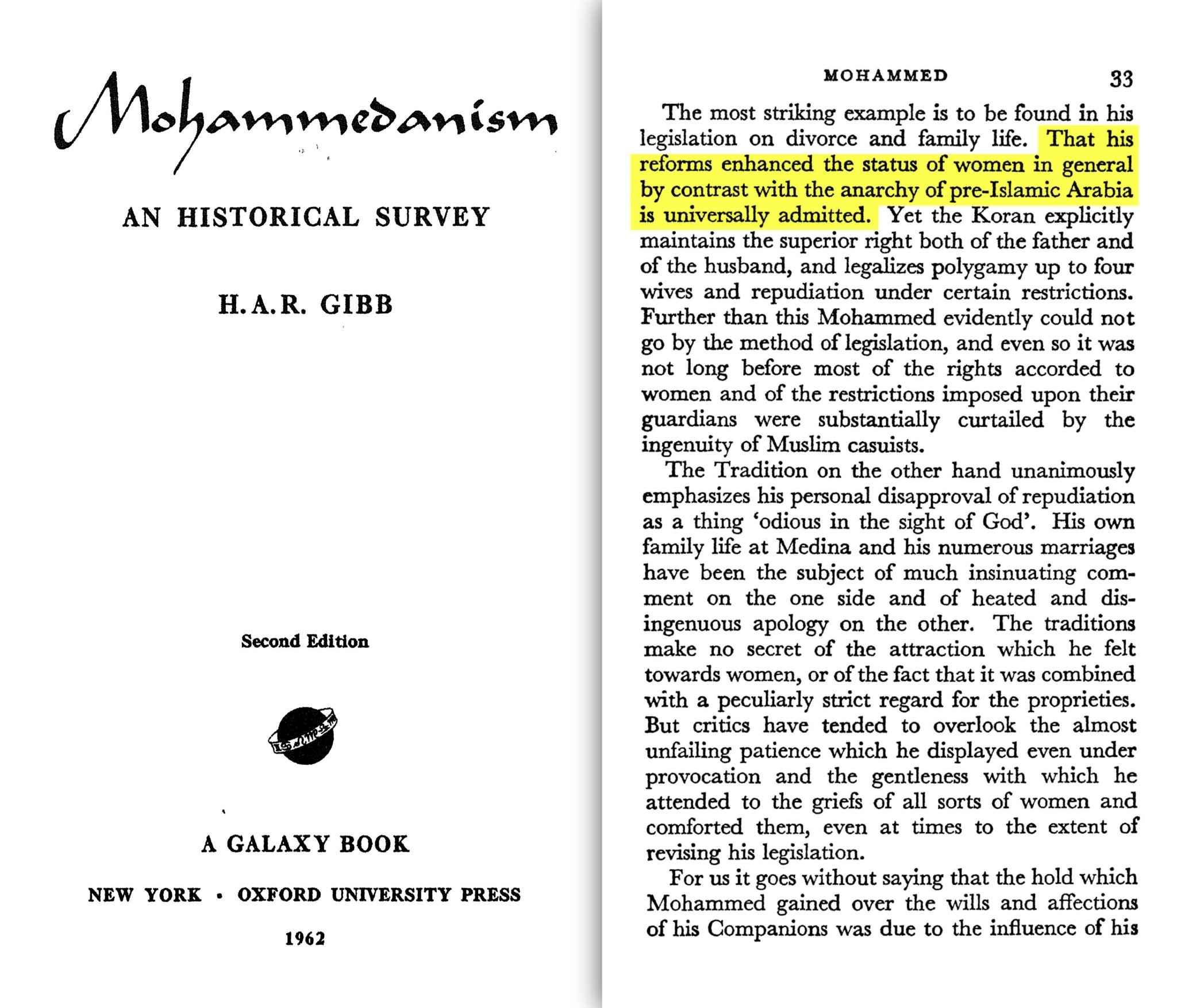
acknowledged by missionary William Muir. Orientalist Hamilton Gibb also said, “It is universally accepted that Muhammad’s reforms enhanced the status of women.”
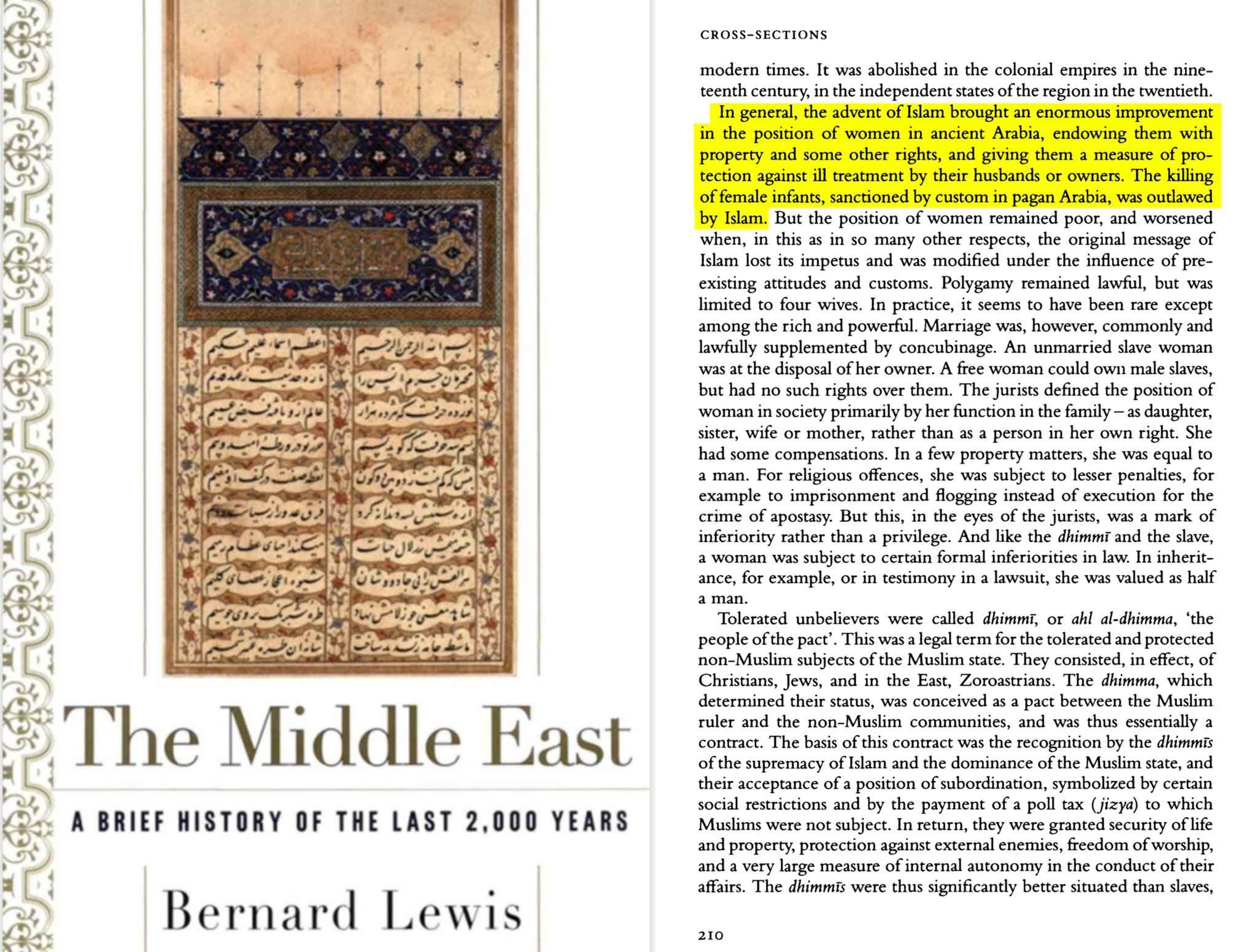
Bernard Lewis stated, “The emergence of Islam significantly improved the status of women, granting them property rights, protection from mistreatment by husbands or guardians, and prohibiting female infanticide, which was common in pre-Islamic Arabia.”


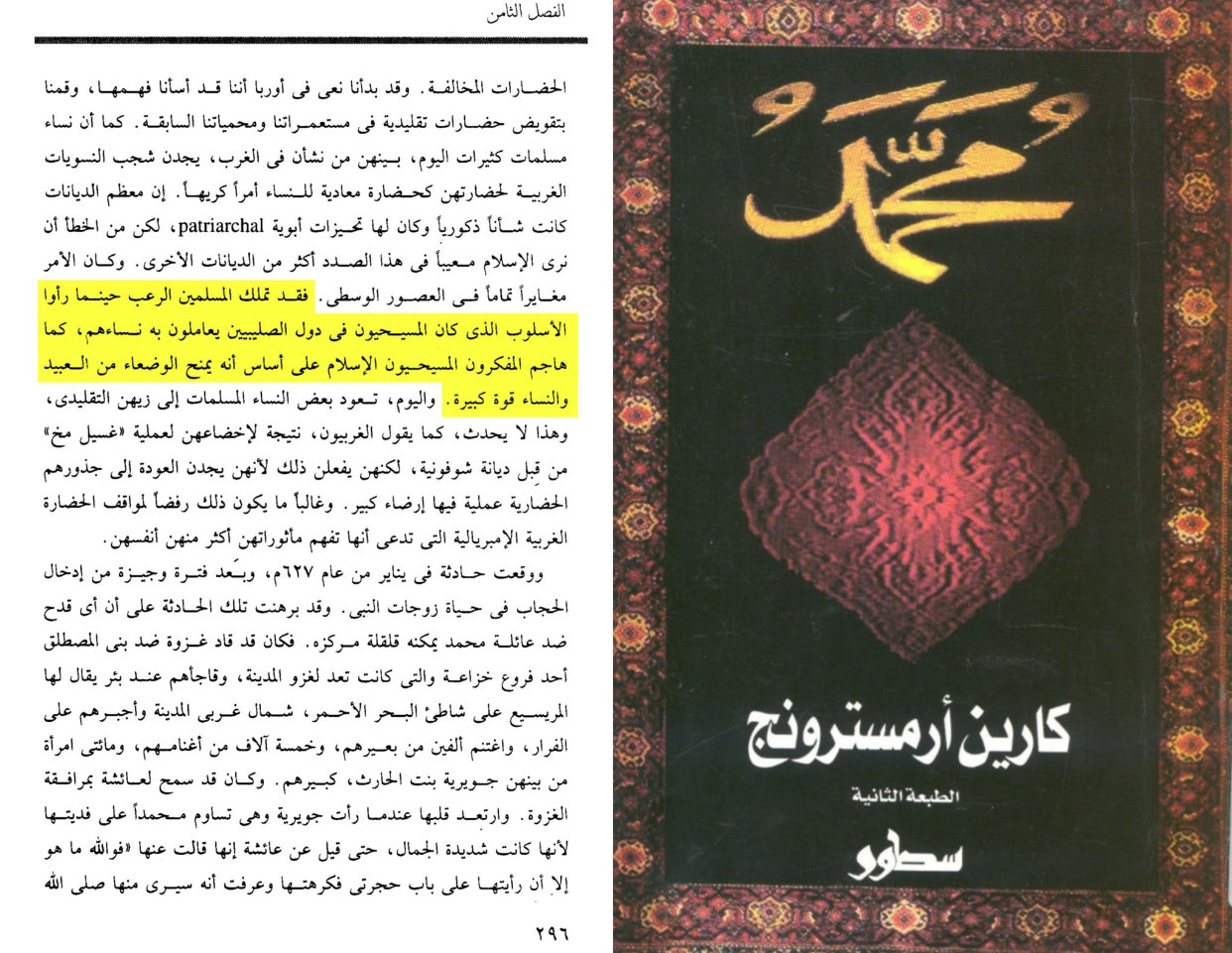
The Church Fathers and Christian thinkers attacked Islam in the Middle Ages for elevating women’s status, which they saw as a flaw. Muslims were shocked by the harsh treatment of women in the Crusader states!
![The French sociologist [Gustave] says: “Islam's merit was not limited to raising the status of women, but we add to this that it was the first religion to do so, and it is easy to prove this by stating that all religions and nations that came before the Arabs mistreated women.”](/media/images/french.png)
The French sociologist [Gustave] says: “Islam's merit was not limited to raising the status of women, but we add to this that it was the first religion to do so, and it is easy to prove this by stating that all religions and nations that came before the Arabs mistreated women.”
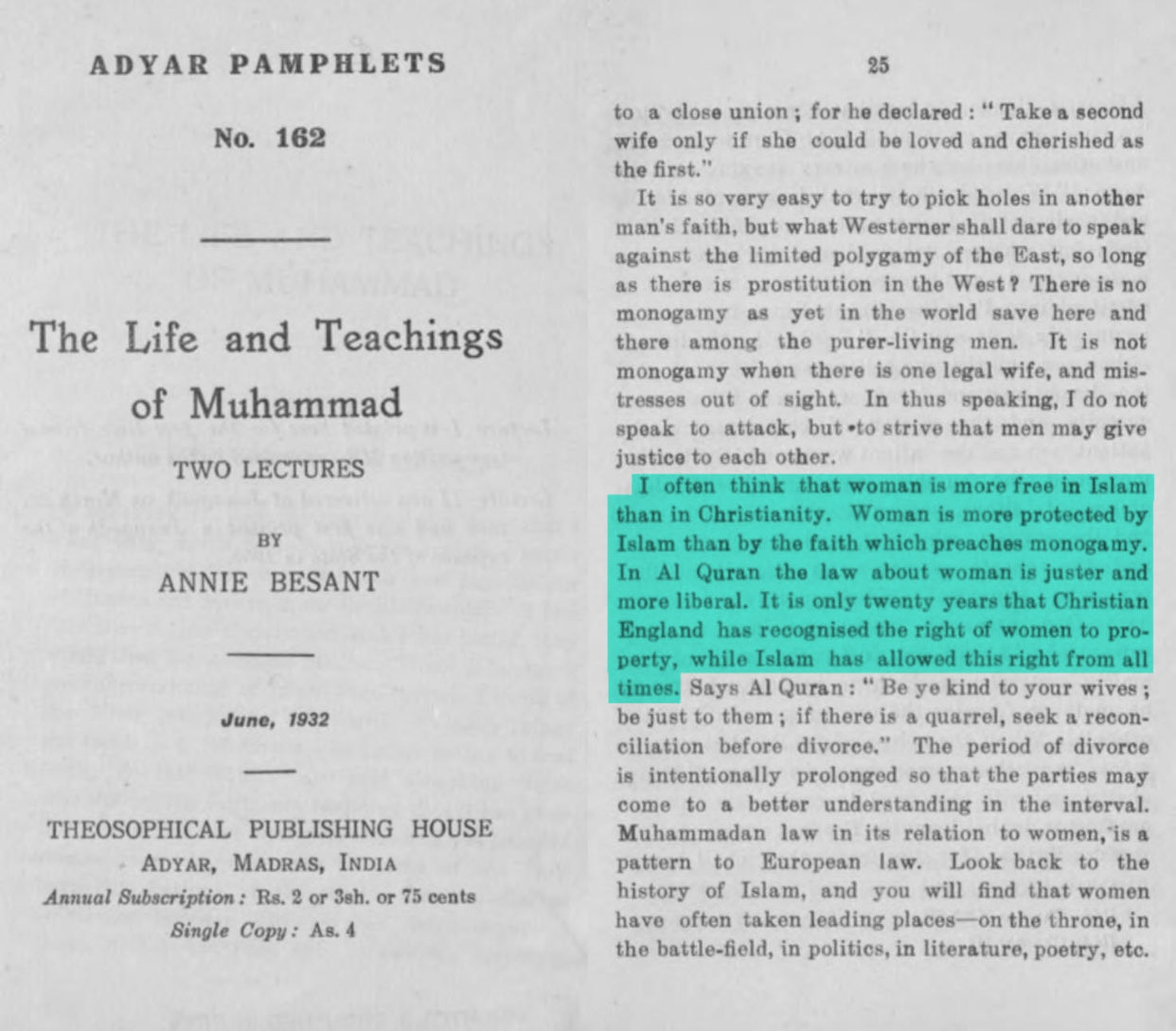
Annie Besant, the religious scholar, said, “I often think that women are freer in Islam than in Christianity. Islam gave women the right to own property throughout its history, while Christian England didn’t recognize this right until later.”
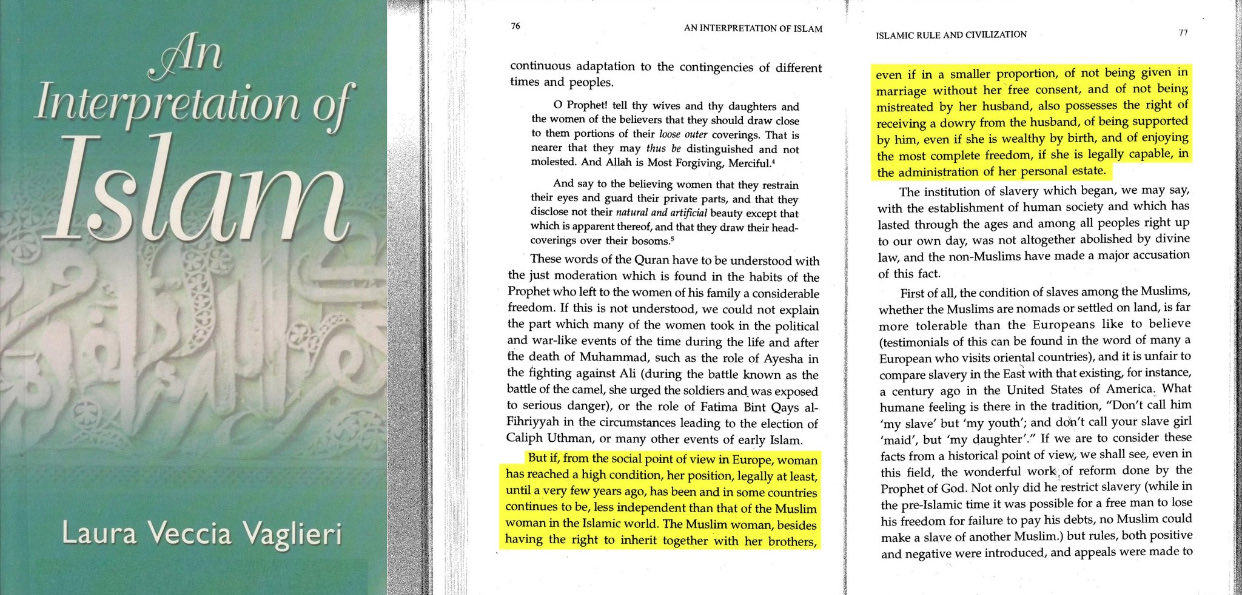
A Muslim woman enjoys the right to inheritance, consent in marriage, protection from mistreatment, a dowry, and financial support from her husband, even if she is wealthy. She also has full freedom to manage her personal property if legally qualified.
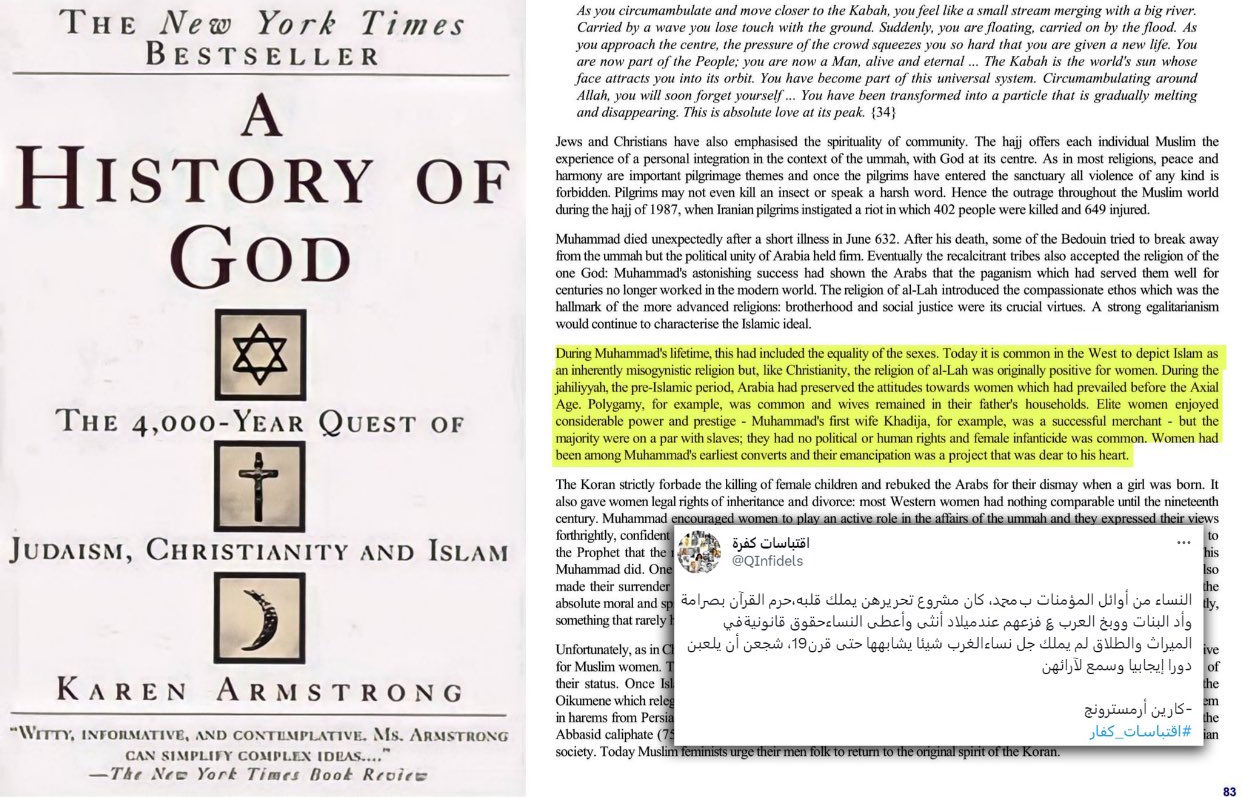
Historian Karen Armstrong highlights that Islam, during Muhammad’s time, promoted gender equality unlike pre-Islamic Arabia, where women had few rights. Islam empowered women, as seen with early converts like Khadija and worked towards their emancipation, a priority for Muhammad.
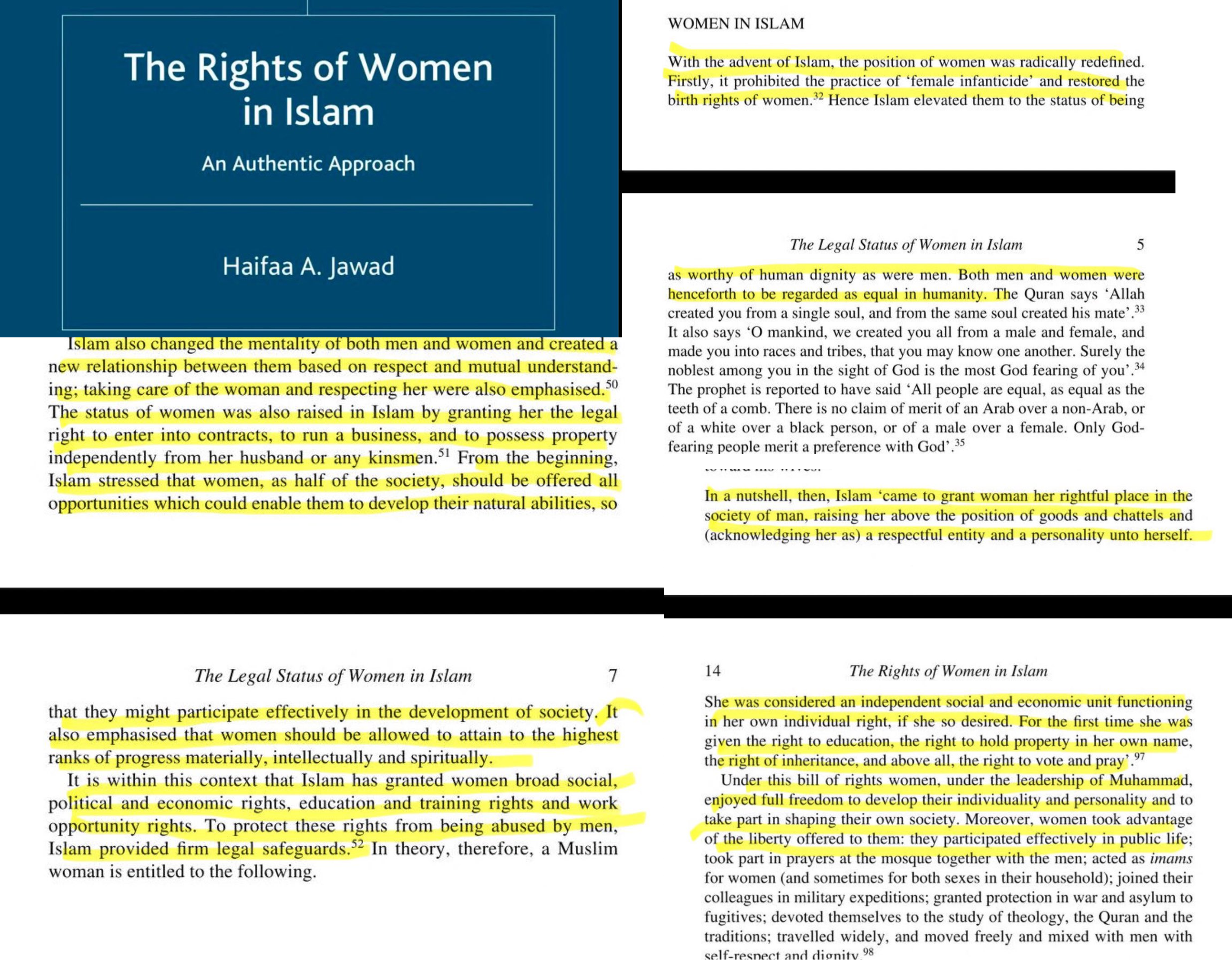
Islam elevated women’s status by granting rights to property, education, and inheritance. Women were encouraged to participate in public life and lead prayers, with legal safeguards protecting their well-being and empowering them long before many Western societies.




